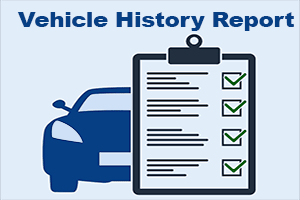Ohio Vehicle History Report
The Importance of a Vehicle History Report
Buying a car is one of the most significant investments most people make, and having detailed information about the vehicle's past can prevent future headaches. An Ohio vehicle history report serves as an objective research tool. It allows potential buyers to peer into a car's background and what potential issues may be lurking under the surface.
Unveiling a vehicle's history can highlight a multitude of useful vehicle data. It is a comprehensive record that details the history of accidents, alterations, ownership changes, reported issues, and safety compliance. It compiles data from various sources, including state and national databases, insurance companies, and law enforcement agencies, to give you a thorough and comprehensive snapshot of the vehicle's past. This report is always for anyone considering purchasing a used car, as it reveals information that might not be apparent during a physical inspection, such as previous accidents, title issues, or maintenance neglect. It also holds the seller accountable, where without it you may just be taking a stranger's word for it being in good condition.
Beyond just a list of past events, a vehicle history report offers a narrative of the car's life. It can tell you how many owners the vehicle has had, any major repairs it underwent, and whether it was part of a fleet or used as a rental, which can affect its wear and tear. By having this context, the report can help you evaluate the vehicle's current condition, its potential longevity, and what it's actually worth.
Key Features of a Vehicle History Report
1). Accident History: This section lists any accidents the vehicle has been involved in, including the severity of the damage and whether the car was declared a total loss. This part of the report should be reviewed carefully as it impacts the structural integrity and safety of the vehicle. Knowing about past accidents can also help you anticipate future maintenance needs and negotiate a better price.
2). Odometer Verification: Verifying that the odometer readings are accurate and have not been tampered with, which is helpful for assessing the vehicle's true value. Odometer fraud is a common issue that can mislead buyers about the real condition and worth of a vehicle. A verified odometer reading assures you that the mileage is genuine, reflecting the actual usage of the car. You can also have the previous owner fill out an odometer disclosure statement to root out any potential fraud.
3). Title Information: Provides details about past vehicle ownership, including any changes in title, which can indicate potential issues. This includes information on whether the vehicle has a clean title or if it has been salvaged or rebuilt. This can affect the vehicle's insurability and resale value. A title check can also tell you if there has been any reported title fraud or theft.
4). Service Records: Lists past maintenance and repairs, helping you assess how well the vehicle has been cared for. Regular servicing records indicate that the previous owner maintained the vehicle properly, which is a good indicator of the vehicle's reliability. Conversely, a lack of service records might suggest neglect, potentially leading to mechanical issues. These are not always included in these reports. You may want to ask the seller for their copies of service records.
5). Recall Information: Alerts you to any safety recall notices that have not been addressed. Unresolved recalls can pose safety risks, so knowing about them allows you to take necessary actions to ensure the vehicle's safety. Promptly addressing recalls is crucial for maintaining the vehicle's integrity and protecting its passengers.
How to Run a Vehicle History Report by VIN
The Vehicle Identification Number (VIN) is a unique 17 digit code needed to run a comprehensive vehicle history report. It acts as the vehicle's fingerprint, allowing you to access its complete history, from the date of manufacture to the present. Here's how you can run this report using a VIN:
1). Locate the VIN: The VIN can typically be found on the driver's side dashboard, visible through the windshield, or on the driver's side door frame. It may also be listed on the vehicle's registration documents and insurance policy. Having the complete and correct VIN is paramount, as even a small error can lead to a report for a different vehicle.
2). Choose a Vehicle History Report Provider: Several companies offer vehicle history reports, including third party providers, and the National Motor Vehicle Title Information System (NMVTIS). Each provider might have slightly different information, so it's wise to check what they offer. Some providers might have exclusive access to certain data sources, offering more comprehensive reports.
3). Enter the VIN: On the provider's website, enter the VIN in the designated search field. Make sure to double-check the number for accuracy. An accurate VIN will make sure that the report you receive pertains to the correct vehicle, providing you with reliable information.
4). Purchase the Report: Most providers charge a fee for the report. After payment, you can access the comprehensive vehicle history report. This investment is a small price to pay compared to the potential costs of purchasing a vehicle with undisclosed issues.
5). Review the Report: Carefully examine the details provided in the report. Look for any red flags such as accidents, title issues, or odometer discrepancies. Understanding the report can offer peace of mind when making large purchase decisions, potentially saving you from costly mistakes.
What Do Vehicle History Reports Include?
1). Accident History: Includes reports from insurance companies and law enforcement agencies about any accidents involving the vehicle. This can give you insight into the extent of past damages and repairs. Understanding the severity and frequency of past accidents helps gauge the vehicle's durability and overall integrity.
2). Odometer Readings: Accurate mileage is an often overlooked aspect for understanding a vehicle's wear and tear. Discrepancies in odometer readings can indicate fraud. Consistent mileage records build trust in the vehicle's reported condition and can be a deciding factor in its purchase.
3). Title History: Reveals information about the vehicle's title status, such as salvaged or rebuilt titles, which can affect the car's value and insurability. A clean title history is preferable, which is a good means to verify there are no legal or financial holds on the vehicle.
4). Ownership History: Lists the number of previous owners, which can indicate how frequently the vehicle has changed hands. Frequent ownership changes might suggest underlying issues, while fewer owners may indicate a more stable history.
5). Lemon Check: Identifies if the vehicle was returned to the manufacturer due to defects. Knowing if a car was declared a lemon can prevent you from inheriting unresolved manufacturing faults.
6). Use History: Indicates if the vehicle was used as a rental, taxi, or fleet vehicle, which can affect its condition and value. These vehicles often experience higher wear and tear, influencing their longevity and maintenance needs.
7). Recall Information: Lists any safety recalls issued for the vehicle and whether they have been addressed. Verifying that recalls are resolved is important for the safety of the vehicle's occupants and maintaining the car's operational standards.
Why Are Vehicle History Reports Used?
1). Research and Verification: By understanding a vehicle's past, buyers can make more informed decisions, avoiding cars with hidden problems. Knowledge of past issues allows buyers to avoid vehicles that may require costly repairs.
2). Price Negotiation: Having detailed information about a vehicle's history can give buyers leverage in price negotiations. If a vehicle has unresolved issues or a checkered past, this information can be used to justify a lower offer.
3). Fraud Prevention: Reports help prevent fraud by verifying odometer readings and title status. This keeps potential buyers have confidence in their purchase, and they are misled by altered information, giving them a bit of insurance for their investment.
4). Peace of Mind: Knowing the full history of a vehicle provides peace of mind, assuring buyers of their investment's reliability. Confidence in your purchase decision can make the car ownership experience more enjoyable and less stressful.
5). Resale Value: Keeping a copy of a history report can also benefit sellers, as providing a clean report can make the car more attractive to potential buyers. A documented history of good maintenance and no major issues can enhance the vehicle's appeal and market value. Many used car dealerships now provide these for free.
Can I Run a Vehicle History Report by License Plate?
Yes, many third-party providers will allow you to run a vehicle's history with either the VIN or license plate number. By using the license plate, you can also find the VIN of a vehicle and double-check that for accuracy. This is an important step when verifying a used vehicle is legitimate before purchasing it.


